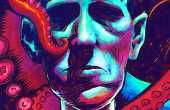Debs
Scientist by training, writer by choice. Loves anime, horror, religion, nature, folktales, and all things weird and strange.
Correspondent I
- Plebian Penman
- Common Writer
- Aristocratic Author
- Lurker
- Pssst
- Hand Raiser
- Vocal
- Sharp-Eyed Citizen
- Town Watch
- Detective Deskman
- Otaku
- Article of the Month
- ?
- Articles
13 - Featured
13 - Comments
127
- Ext. Comments
71 - Processed
34 - Revisions
32
- Topics
28 - Topics Taken
6 - Notes
59
- Topics Proc.
26 - Topics Rev.
13
- Points
4261 - Rank
29 - Score
2204
Latest Articles
Latest Topics
Lesser-Known Adaptations of The OfficeWhen most people think of the mockumentary sitcom series known as The Office, they probably think of the version from either the United States or the United Kingdom. However, The Office is a multinational phenomenon, with at least eight or ten countries having their own home-grown adaptations of it, which they use to make fun of their own work cultures. What are some highlights from these international adaptations? How do they differ from their more famous English-language counterparts? Are there any adaptations that, in your opinion, do not receive the attention they deserve?
|
Does BoJack Horseman suffer from psychosis?The TV series "BoJack Horseman" is a surreal dark comedy that takes place in a world in which some of the characters (including the title character) seem to be talking animals. BoJack himself openly suffers from several mental illnesses, including depression and anxiety, but could he also have a psychotic disorder, like schizophrenia or bipolar disorder? Psychotic disorders interfere with people’s perception of reality, which might explain some of the more surreal aspects of the series. It might even explain the talking animals, since psychotic illnesses can include a delusion that one is an animal. So, what is the evidence for or against BoJack suffering from psychosis? If he does have a psychotic disorder, what kind does he have? |
Fictional children acting in unchildlike waysIt’s relatively rare to find fictional children who act like real children. More often than not, fictional children talk and act like miniature adults. Oftentimes, this is a deliberate artistic choice, which may either be played for laughs (as in Rugrats, The Simpsons, or South Park, for example), or used to show that there is something seriously wrong with the child in question (as in The Umbrella Academy, and many anime series). On the other hand, some creators seem genuinely unable to fathom how children think and behave, and so write them behaving like adults by default. What are some examples of stories that portray children this way? What, if any, differences are there between stories that portray children acting like adults for artistic reasons, and those whose writers simply don’t know any better? What effects, if any, do fictional portrayals of unrealistically-mature children have on how people view children in the real world?
|
Who should be the focus of the next biopic?A biographical film, or biopic, attempts to document the life of a real person or organization on film. Some examples of famous biopics include Schindler’s List (for Oskar Schindler), A Beautiful Mind (for John Nash) and Selma (for the American civil rights movement, including Martin Luther King, Jr). Who are some examples of people, living or dead, that would make good biopic material? What is it about them that suits the biopic format? If a biopic were to be made of them, what details would need to be included?
|
Characters who fall in love with versions of themselvesIn some stories, the main character’s love interest seems designed to be an almost perfect mirror image of themselves. These characters’ lovers share their same personalities, tastes, and motivations, and might even look something like them. "The Umbrella Academy" is one notable show that does this. So far both seasons feature a central character falling in love with someone who is almost exactly like themselves (Vanya in Season 1 and Diego in Season 2). What are some other examples of this trope? How popular is this phenomenon in fiction and what factors contribute to it?
|
Are comic book movie and TV adaptations more realistic than the source material?It seems as though, when comic books (Japanese or Western) get adapted into movies or TV series, they become less over-the-top and stylized. The visuals may be toned down, for instance, and some of the characters may talk, act, or even look more like real people would in their situations. For instance, many of the characters in the "Deadman Wonderland" anime talk and act much more realistically than their manga counterparts did. The Netflix adaptation of "The Umbrella Academy" is also supposed to be more realistic and restrained than the original comics, and makes more of an effort to flesh out the characters’ personalities and motivations. Are most comic book adaptations like this, or does it depend on the individual adaptation? If indeed it is a trend, what are some of the factors driving it? For instance, do characters simply have to become more realistic once a real person is charged with bringing them to life?
|
Significance of character design of non-human creaturesIt’s often been said that a character’s design is supposed to tell the audience something about them and complement their personality and role in the story in some way. Non-human characters provide unique challenges and opportunities for animators because they possess features that no human could ever have. The popular kids’ movie Monsters, Inc. does a great job of designing characters to perfectly fit their roles in the story. For instance, the main character, Sully, is huge and strong but also fluffy and colorful; his timid but loyal sidekick Mike is small and has a very large and expressive eye and mouth; and the villain Randall is a slippery and surly-looking lizard voiced by Steve Buscemi. What are some other examples of non-human characters with particularly appropriate or memorable character designs? What is it about their designs that provides insight into their characters more broadly?
|
The state of "too good for this sinful earth" characters nowadaysThroughout history, many stories have featured characters who are depicted as being "too good for this sinful earth" and therefore dying young. Charles Dickens, for instance, wrote many such characters into his stories; and Uncle Tom’s Cabin also depicts its most famous characters in this way. Such an idea, of course, has explicitly religious connotations, with the idea being that the character is so pure that they belong in heaven and not on earth. Do such characters still exist in modern, secular media? If so, what are some examples? How can a story that lacks a religious bent portray a character as too good for the world (if indeed it’s possible)?
|
Latest Comments
| The Unsung Hero of the British Office | |
It’s a great show and I personally find it much better written and more enjoyable than the US one (and I say this as someone who saw the US version first and did enjoy it at the time), but it’s one of those shows you definitely have to watch more than once. The story is much too rich and layered to take everything in in one go. This is probably why I see so many misconceptions about the series circulating: my guess is that a lot of people watched the show exactly once and thought they knew everything there was to know about it, when nothing could be farther from the truth. To put things in perspective, I’ve now seen the show three times, and had to take very detailed notes while I was watching to get the material I used for writing this article. | The Unsung Hero of the British Office |
It’s true, I think it’s a bit misleading to refer to one or the other as the “American Gareth” or the “British Dwight” for this very reason. The characters may occupy the same role in the cast, but they are not in any way the same person. | The Unsung Hero of the British Office |
I totally agree. For awhile now it’s been my impression that this type of performance is a staple of British comedy: a character saying ridiculous things with a straight face, to the point it’s clear he doesn’t know how ridiculous he sounds. I’ve seen The Office three times now, and even on my first viewing Gareth was easily the funniest character in the whole show. Nearly all the show’s deleted scenes are of him as well, probably for the same reason. | The Unsung Hero of the British Office |
You’re absolutely right. One of the things that gets to me is that Tim clearly has a double standard about his “jokes.” It’s apparently perfectly fine for him to play mean-spirited pranks on Gareth, but the moment someone tries to do the same thing to him (thinking here of the scene in episode 3 where Chris Finch steals his shoes and throws them over a building) it’s not funny anymore. We also see that Tim gets annoyed with Gareth simply for ripping paper too loudly, but he disrupts Gareth’s work on purpose and just expects him to grin and bear it. He can dish it out, but he can’t take it, basically. | The Unsung Hero of the British Office |
I actually don’t think Gareth is autistic at all, for a number of reasons. For one thing, autistic people tend to be very literal, but Gareth is completely comfortable and fluent in non-literal language; we see him use figures of speech, sarcasm, and slang quite frequently, for instance. He also spends quite a lot of time trying to analyze or talk about people’s mental and emotional states, and even shows some ability to “code-switch”–that is, to change his mannerisms and speech patterns based on who his audience is. Someone who was actually on the autism spectrum would have quite a lot of trouble doing any of these things. Moreover, his facial expressions, gestures, and speech patterns are a lot more naturalistic and less stilted than those of, say, Dwight (who I don’t really think is autistic either, but there is at least more of a case to be made for him). Gareth might still have neurological issues, of course, and in fact probably does; but autism isn’t one of them. | The Unsung Hero of the British Office |
That is one of the things I find interesting as well. What fascinates me is that if you read between the lines, it’s clear that Gareth doesn’t actually lack social skills as such. Even his job is a dead giveaway, because he works as a salesman–a position that would require him to negotiate with other people in fairly sophisticated ways. The scenes in which he has social difficulties nearly all take place between him and his coworkers (or boss) in the office. His interactions with women are a good example: he never manages to win over any of his pretty female coworkers, but during the party at the end of the first series we see him convince a pretty woman he doesn’t work with to dance with him without much effort. What all this suggests to me that it’s the workplace itself that has him especially agitated, and this causes him to act out. | The Unsung Hero of the British Office |
This is a very thorough analysis of Spirited Away. I particularly love that it goes past the obvious themes of environmentalism and the like and analyzes the story in a uniquely Japanese (or East Asian) context. I hadn’t thought of the story as relating to Confucianism or what it means to live in an “ordered” society, but when you spell it out like this, it does make sense. | Spirited Away as Social Criticism |





Main Character Immunity (TM)